“To self-drive or not to self-drive is not the question” __Madhav SBSS
Sensors play a key role in self-driving cars. Radars are widely used as they are good in different weather and lighting conditions and they are cheap. Lidars are high density sensors but are not cheap and are not good in poor lighting and weather conditions. Cameras are cheap, high density but don’t perform well under poor lighting or weather conditions. Our eyes work in a similar way to the camera, it might be the right device here in mimicking human visual perception.
Here is a visualization of where these sensors are being used today in developing self-driving car technology –
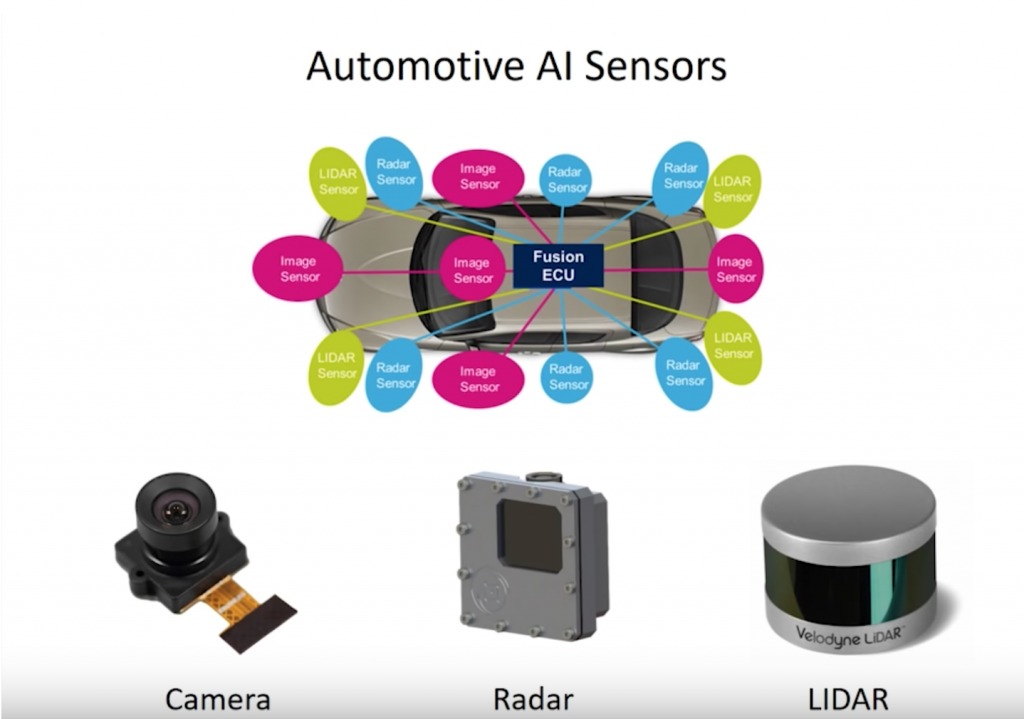
Here is a visual spider web representation of the effectiveness of each type of sensor –
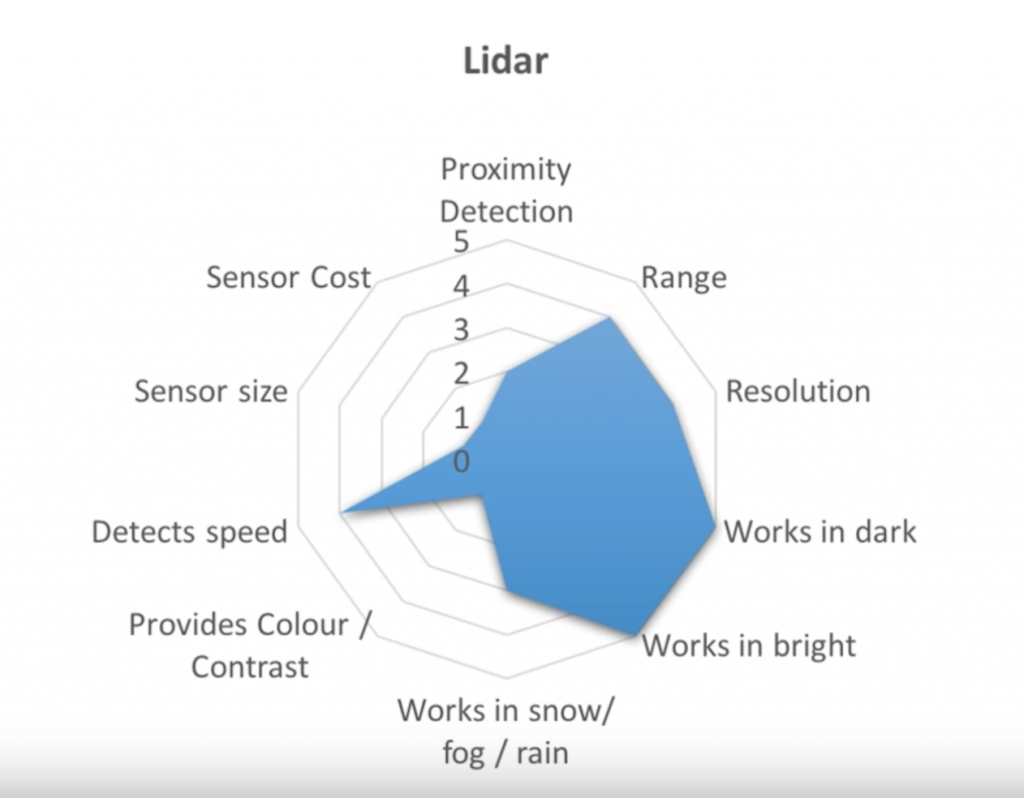
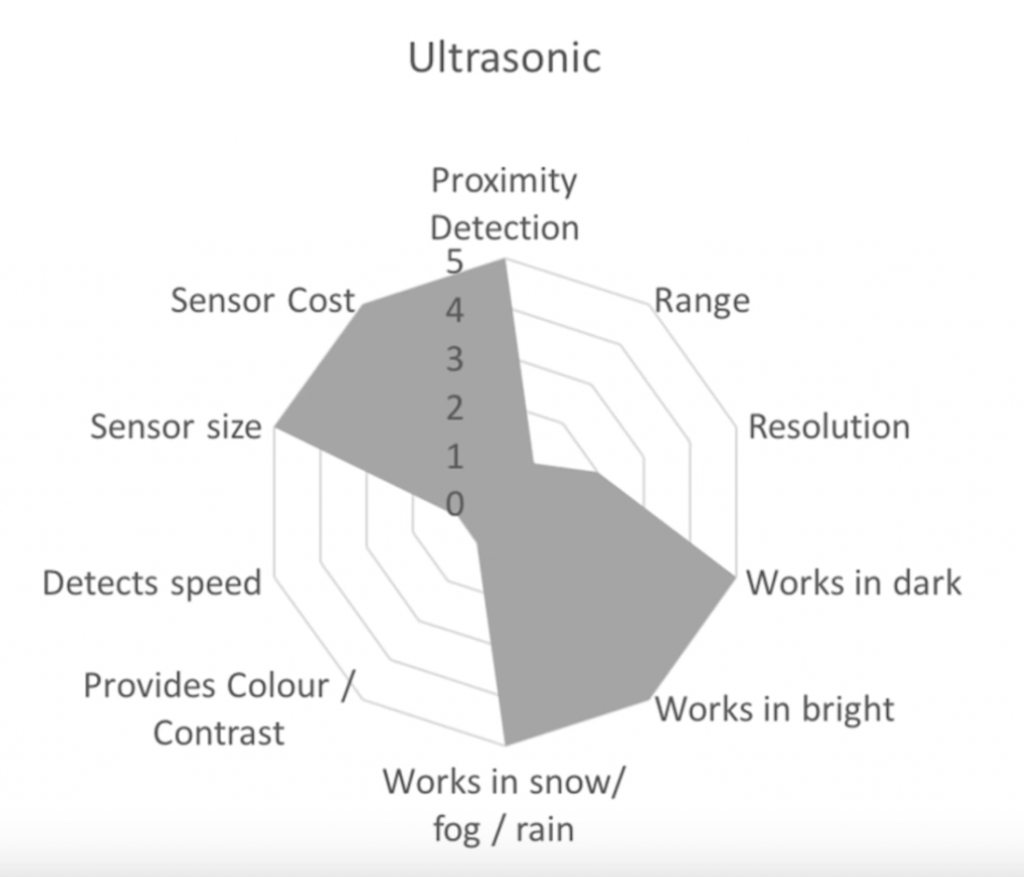
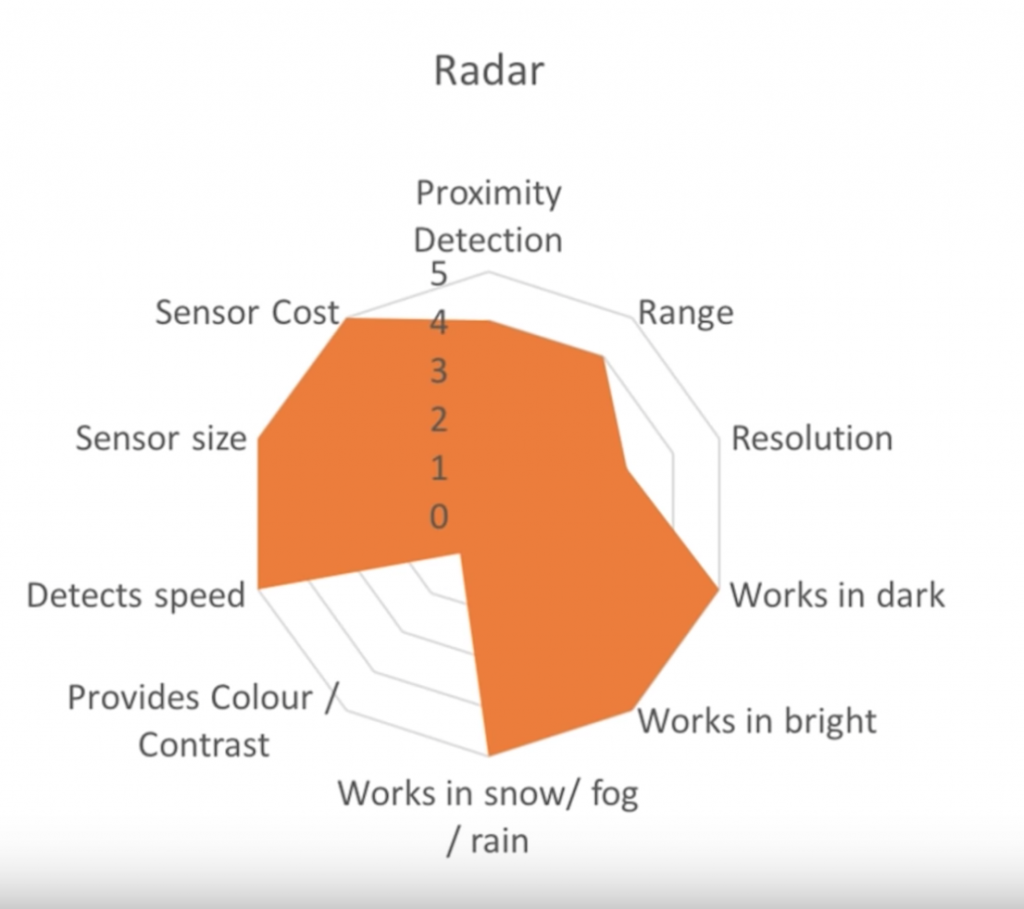
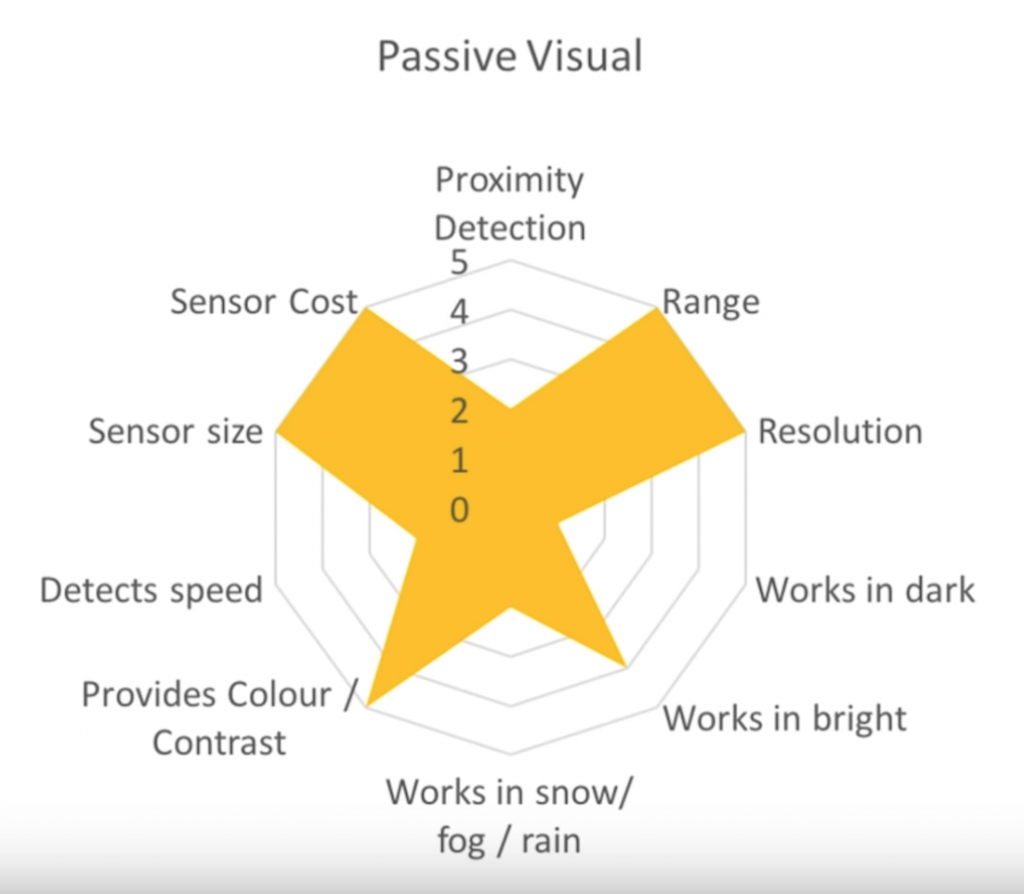
Is driver state detection important in self-driving cars?, isn’t the driver supposed to be free to do whatever they want to do, as if they are sitting on a sofa at home?. Here is a chart from Lex Fridman’s talk on what to track and tracking difficult (increasing) going left to right.
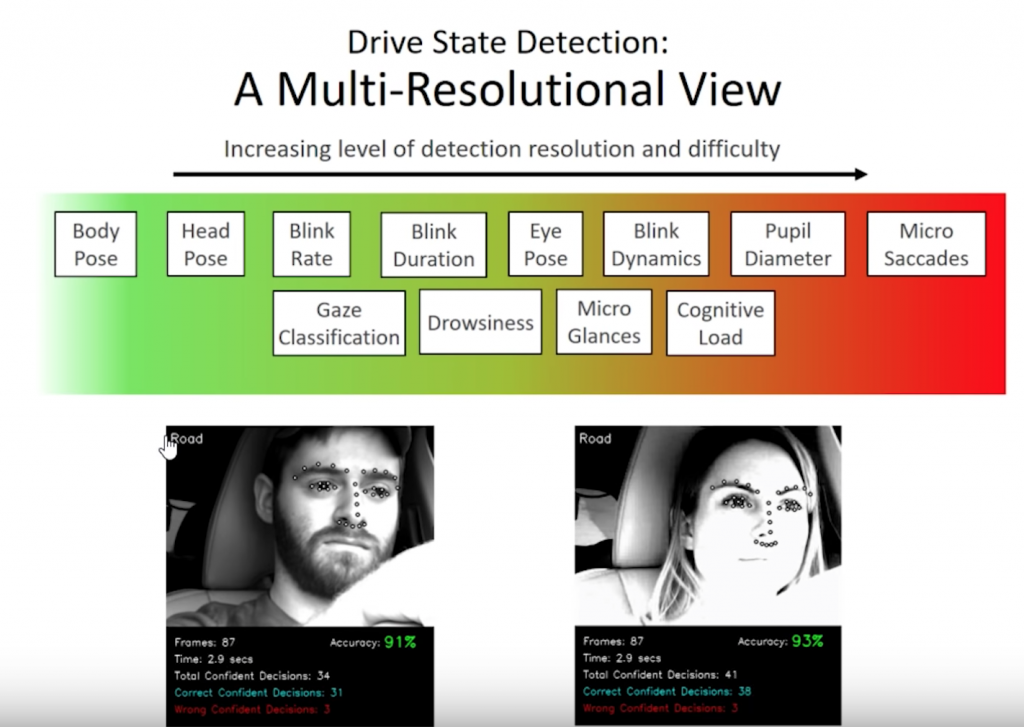
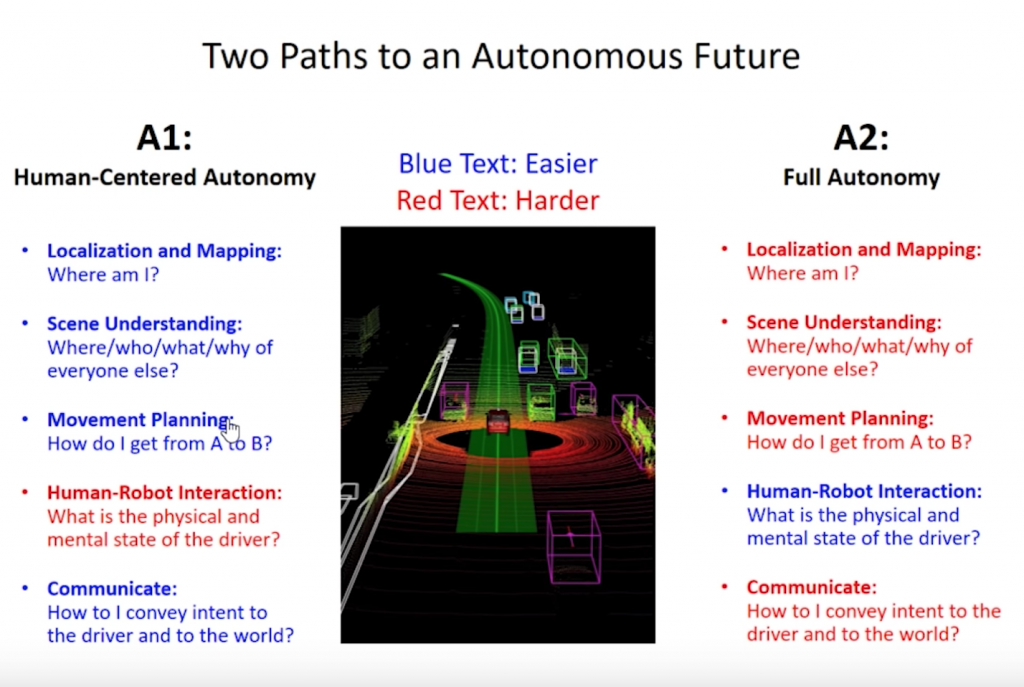
Source: selfdrivingcars.mit.edu
As you can see in the above picture, there are still many areas in red (hard to solve), which means there are plenty of opportunities to make a difference in the field of self-driving cars. Be part of the dream that brings safety and access to humans trying to get from point A to point B.
Here are some of the companies that are worth following if you are interested in self-driving cars, technologies and most importantly the people driving the technology forward.
Companies working on fully autonomous self-driving tech –
Companies working on Human-centered autonomous self-driving tech –
- comma.ai
- Tesla Autopilot
- Volvo PilotAssist
- Audi Traffic Jam Assist
- Merc-Benz Drive Pilot Assist
- Cadillac Super Cruise
Here are a few resources to further explore self-driving technologies –
Sources: